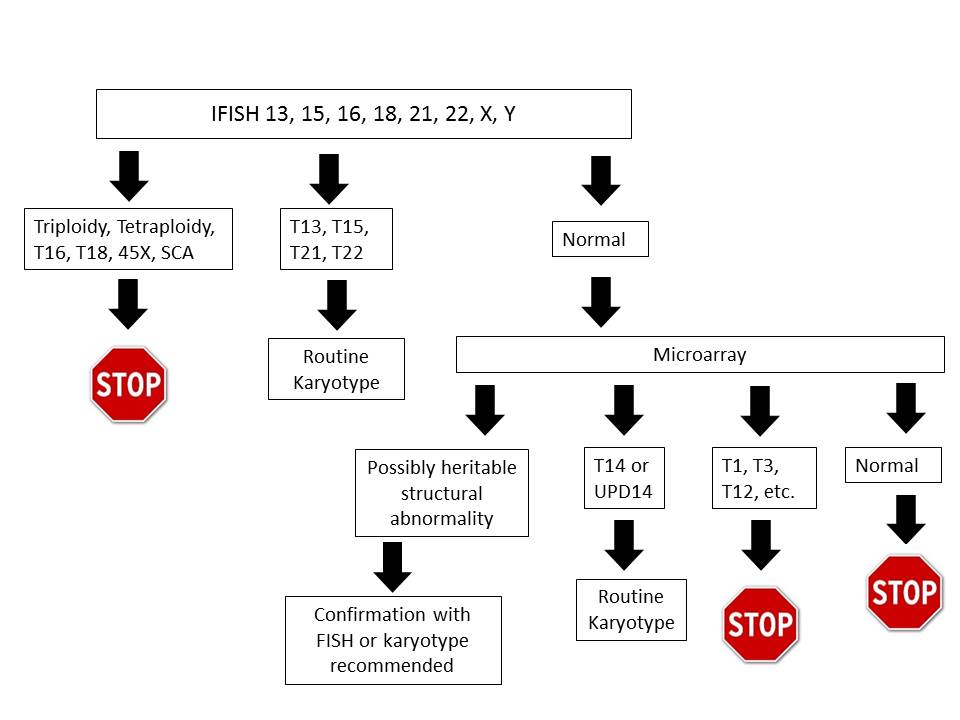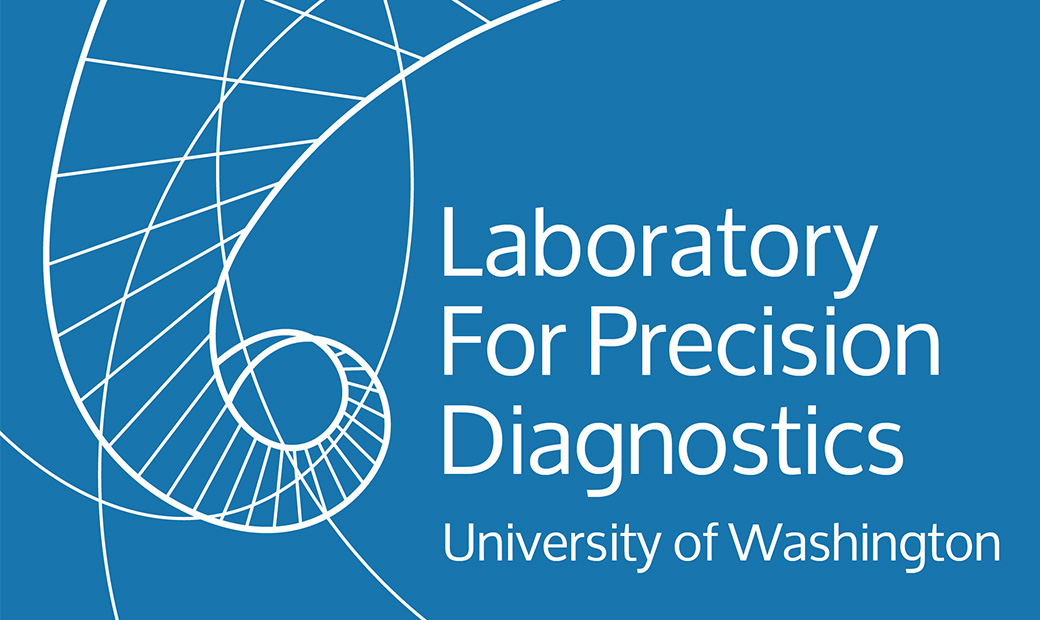When to test?
- After any third trimester fetal demise or stillbirth
- For patients with recurrent pregnancy loss, test products of conception from a second loss
What to order?
- First tier: IFISH for chromosomes 13, 15, 16, 18, 21, 22, X, and Y. Using this panel, a diagnosis will be made for about 80% of pregnancy losses that occurred because of chromosome abnormalities.
- If the IFISH result is consistent with trisomy 16, trisomy 18, 45X, XXX, XXY, XYY, triploidy, or tetraploidy: testing is complete.
- Second tier: If the IFISH result is consistent with trisomy 13, trisomy 15, Down syndrome, or trisomy 22: reflex to karyotyping on cultured cells to determine whether the abnormality is due to a free trisomy (sporadic) or an unbalanced Robertsonian translocation (possibly heritable).
OR
- Second tier: If the IFISH result is normal: reflex to a cytogenomic microarray analysis (CMA).
- If the CMA is normal: testing is complete.
- If the CMA is consistent with trisomy 3, trisomy 7, monosomy 4, etc.: testing is complete.
- Third tier: If the CMA is consistent with trisomy 14: reflex to karyotyping on cultured cells to determine whether the abnormality is due to a free trisomy (sporadic) or an unbalanced Robertsonian translocation (possibly heritable).
OR
- Third tier: If the CMA result shows possibly heritable abnormalities (e.g. paired terminal deletions and duplications suggestive of an unbalanced translocation): G-banded chromosome analysis on cultured cells or subtelomere metaphase FISH is recommended to confirm the structure of the abnormality.

